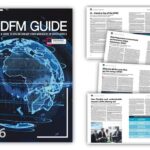Financial therapy and the psychology of financial planning has begun to gain traction in recent years as legitimate fields that combine behavioural finance with emotional insight. However, the conversations in these fields generally flatten gender. Some men do not unravel, and they do not explode or collapse in ways that are easy to diagnose. They rather perform, provide and stay composed, until they don’t. What we are witnessing is not resilience, but containment, and it is breaking men from the inside out.
I call this brittle financial health and cover this in-depth in my upcoming book Financial Therapy for Men published by Springer.
What is brittle financial health?
Brittle financial health is not financial anxiety, overspending, avoidance or the usual list of money disorders. It is the opposite. A hard-shelled posture of relentless control, perfection and stoic provision that fuses financial behaviour with masculine identity.
This is the man who loses his identity when he loses his income or source of earning. The man who equates net worth with human worth. The man who smiles while bleeding inside because vulnerability is risk, and risk equals failure. And failure, for such a man, is annihilation, not just a setback.
Masculinity does not need defending.
Brittle financial health hides in plain sight. It may also be the underlying psychological factor in CEOs who pursue aggressive corporate strategies under the guise of strategy but are reacting to identity threat. It is in working-class men who silently absorb the pain of lost status, economic irrelevance or being outearned. It’s in the “breadwinner” afraid to speak, because in this cultural moment, when provision is paired with boundary-setting, it’s no longer seen as care, it’s recoded as control. And in today’s discourse, control is suspect by default.
Why it matters
We are not just dealing with financial mismanagement; we are watching a slow collapse of narrative coherence. Men are conditioned to view themselves as protectors, providers and “heads of home”. When those scripts are destabilised, by job loss, economic shifts or by shifting gender roles, they don’t merely adapt, many just freeze in place, and then disappear behind the mask.
The irony is that we often mistake these men for being fine but their emotional shutdown, their compulsive over-functioning and their strategic withdrawals are not signs of health, but emergency mechanisms in disguise.

Why financial therapy or psychology isn’t reaching them
For all its value, therapy often misreads male silence. It assumes the issue is resistance and that men need to be coaxed into vulnerability. In this context, they are required to “open up” to heal. But what if that’s the wrong entry point? What if men aren’t refusing therapy, but are structurally mismatched to it? What if their silence is not avoidance, but a survival mechanism?
When you ask a man in brittle financial health to confess, cry or collapse, without first giving him a stable narrative or emotional scaffolding, you are asking him to dissolve the only structure holding him together, and that is not healing, it’s demolition.
Most men are not toxic, they’re just tired.
Toward antifragile financial identity
Brittle systems break while antifragile systems don’t just survive pressure but evolve from it. What men need is not catharsis on demand but sequencing. Men need:
- Identity diversification. More than one role in which to be whole.
- Behavioural elasticity. Permission to try, bend and shift without shame.
- Temporal anchoring. A long-enough timeline to absorb strain before collapse.
This isn’t about defending masculinity
Masculinity does not need defending. It needs decoding and retooling, not to be softer but to be more adaptive. A masculinity that can carry weight without cracking and absorb risk without converting all of it into silence or domination.
Most men are not toxic, they’re just tired. And most men aren’t emotionally illiterate, they are simply emotion rationing. They are walking on cognitive budgets and psychological timelines, because no-one ever told them they were allowed to fall apart, let alone rebuild.
This is not a clinical problem alone
Brittle financial health shows up in marriages, in boardrooms and in capital markets. It’s the silent driver of coercive leadership, of financial disengagement, of male suicide. This is not just a personal finance issue, it’s a systemic threat and we will keep misdiagnosing it until we name it for what it is. What some men are going through is not resistance, not stoicism and not fragility. It is containment under siege.
If you are a financial planner applying the psychology of financial planning or financial therapy, a financial coach or a partner, stop waiting for the meltdown because it may never come. What is needed is not permission to feel, but space to hold on until the narrative scaffolding can be rebuilt. Because sometimes, the bravest thing a man is doing… is not collapsing. And if you don’t see it, you’re not looking closely enough.












